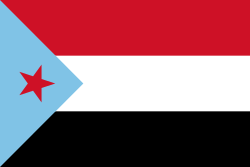| << | November 1967 | >> | ||||
|---|---|---|---|---|---|---|
| Su | Mo | Tu | We | Th | Fr | Sa |
| 1 | 2 | 3 | 4 | |||
| 5 | 6 | 7 | 8 | 9 | 10 | 11 |
| 12 | 13 | 14 | 15 | 16 | 17 | 18 |
| 19 | 20 | 21 | 22 | 23 | 24 | 25 |
| 26 | 27 | 28 | 29 | 30 | ||

The following events occurred in November 1967:
Contents
- November 1, 1967 (Wednesday)
- November 2, 1967 (Thursday)
- November 3, 1967 (Friday)
- November 4, 1967 (Saturday)
- November 5, 1967 (Sunday)
- November 6, 1967 (Monday)
- November 7, 1967 (Tuesday)
- November 8, 1967 (Wednesday)
- November 9, 1967 (Thursday)
- November 10, 1967 (Friday)
- November 11, 1967 (Saturday)
- November 12, 1967 (Sunday)
- November 13, 1967 (Monday)
- November 14, 1967 (Tuesday)
- November 15, 1967 (Wednesday)
- November 16, 1967 (Thursday)
- November 17, 1967 (Friday)
- November 18, 1967 (Saturday)
- November 19, 1967 (Sunday)
- November 20, 1967 (Monday)
- November 21, 1967 (Tuesday)
- November 22, 1967 (Wednesday)
- November 23, 1967 (Thursday)
- November 24, 1967 (Friday)
- November 25, 1967 (Saturday)
- November 26, 1967 (Sunday)
- November 27, 1967 (Monday)
- November 28, 1967 (Tuesday)
- November 29, 1967 (Wednesday)
- November 30, 1967 (Thursday)
- References










